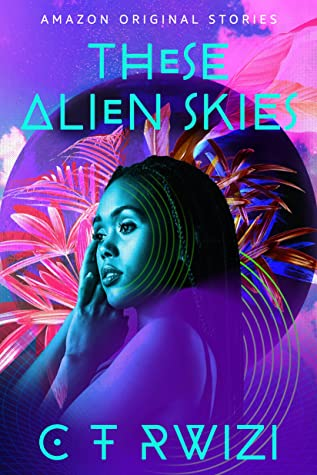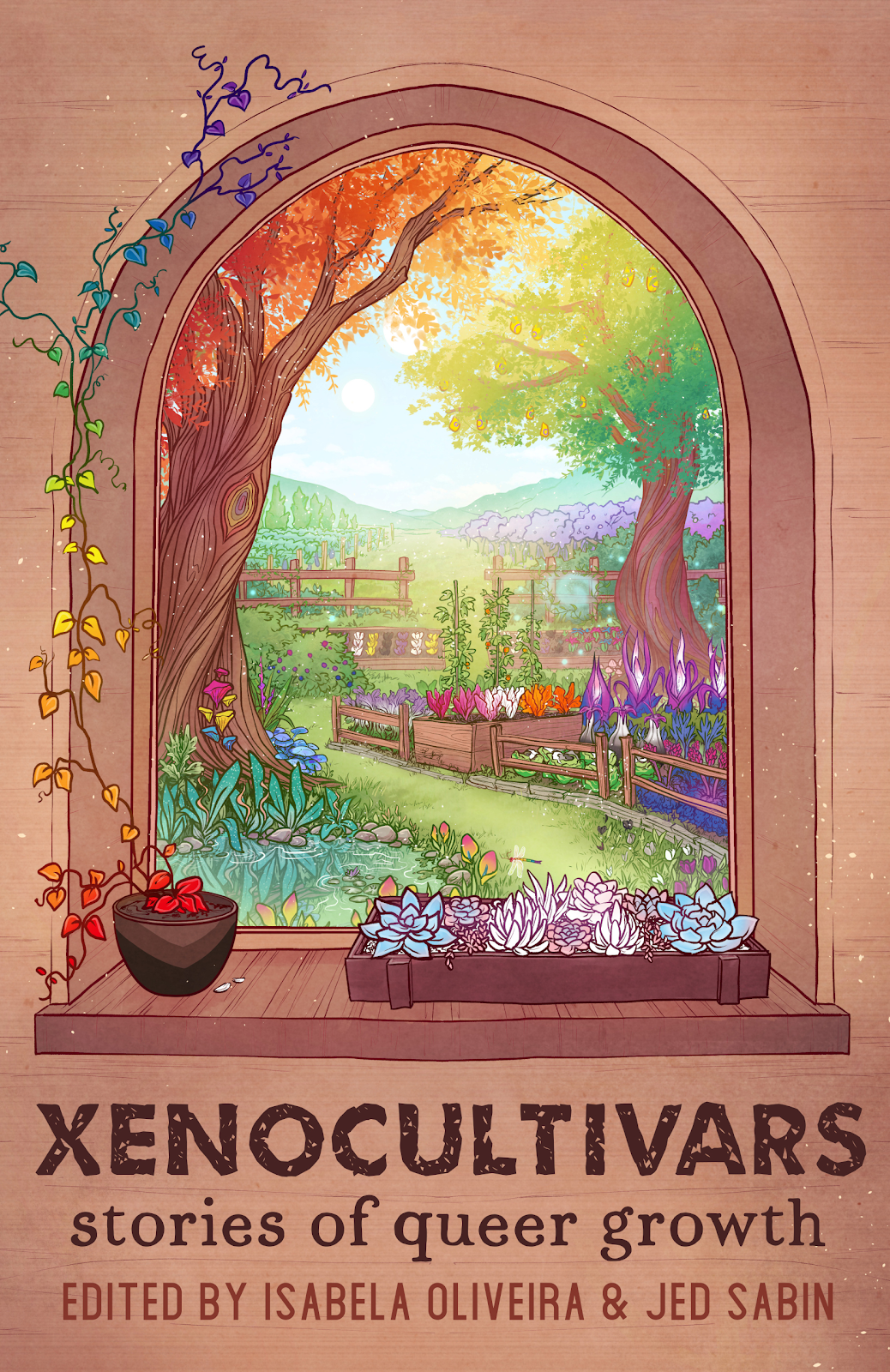Hello and welcome to another edition of Questing in Shorts, the sometimes-monthly SFF short fiction roundup where Adri (that's me) recommends some of her favourite recent reads!
The last couple of months have been quiet for me on the short fiction front, as I've been catching up on longer reading after a big burst in January. But the past two weeks have been good to me, reading-wise, and I sure have some stories to tell you about! Let's get to it:
Fantasy Magazine, Issues 75 - 78 (January - April)
There are some really experimental flash fiction pieces across recent issues of Fantasy Magazine, and I'm left with not much to say beyond "that was cool" about a lot of them. "isio" by Martins Deep in Issue 78 is kind of poetry, but also not, and it riffs off a night of stargazing to create some really interesting imagery about childhood wonder and the mundanity of real life. My notes for "I have reached into the quantum baskets" by Marie H. Lewis (Issue 77) read, in their entirety, "Hades + Persephone but weird quantum shit" and I don't feel I can improve on that (it's good!). "Collecting Ynes" by Lisa M. Bradley (Issue 77) is also firmly in the weird but good category, and I just don't know what to say about "The Mirror Test" by Moses Ose Utomi (Issue 75), which tells the story of a pet dog being forced to take a bath in a way that makes you go "sure, that's an interesting speculative take on the subject". I like the vibes of weird flash, but I struggle to put review words down for it (for the same reason as I very rarely review poetry), so thank you to Fantasy Magazine for the opportunity to expand my skillset!
I'm on more solid reviewer ground with the short stories, and there's some great stuff here. "Slow Communication" by Dominique Dickey (Issue 76) is the story of Darla, who inherits a conversation with a Leviathan: an ancient, slow moving being that speaks once per generation to the women of her family, and allows them to ask one question to move their discussion along. Darla is under pressure to perform because of this lineage and the importance of her one question, but she's also under pressure to conform and maintain this line of women despite being genderqueer and desperate to assert her own identity. It's a great premise, solidly executed, and I really enjoyed watching Darla's journey. It's paired with "Cousins Season" by S. Fambul, a much darker story about family expectations and the labour we perform for our relatives even when it veers into exploitation.A big recommendation also for "Christopher Mills, Return to Sender" by Isabel J. Kim, a very slice-of-life-y story about a teenage boy, murdered on prom night, who is brought back by his (now much older) twin sister so she can bring about justice for his murder. Christopher has become a demon and gone to hell, because he died in rage and pain, and what makes the story so fascinating is how his narration brings to life all the misery and unfairness and big feelings of dying a teenager and the circumstances of his murder, while portraying Christopher himself as relatively emotionless after his death. The challenging but satisfying resolution rounds off a great story.
Amazon Original Stories: Trespass Collection and Black Stars Collection
Despite having a Kindle e-reader, I very rarely buy things directly from the Kindle store and so it took a while for me to notice that Amazon has had two short story "collections" out in the last year: The Trespass Collection, out February 2022, features six animal-focused horror and fantasy stories, while the Black Stars collection from August 2021 features six science fiction stories from Black authors. The stories are packaged individually, but are free if you have a Prime subscription (guilty), so I read two thirds of them over the last week.
Both collections have great authors attached, and the fiction almost entirely lives up to expectations: in Black Stars, the only dud I've read so far is Chimamanda Ngozi Adichie's The Visit, which features a surface level matriarchy/patriarchy reversal that doesn't bring anything new to the table beyond "what if male oppression meant wanking was banned!" Fortunately, the other stories here felt a lot more thoughtful. I enjoyed 2043 (A Merman I should Turn to Be) by Nisi Shawl despite feeling there were layers of the story that I didn't quite understand, and C.T. Rwizi's These Alien Skies is a story about space exploration, connections, and grief which packs a ton of great concepts into its short length. And We Travel the Spaceways by Victor LaValle blew me away from concept to characterisation to execution. We follow Grimace, a homeless protagonist in New York City, as he tries to carry out a mission given to him by the empty drink cans he carries around. Grimace's narration is idiosyncratic but clear, his motivations as a "Signalman" always explained to us, even as the reader can see how unhinged his behaviour must seem from the outside; as he comes into contact with Kim, a trans sex worker who becomes Grimace's partner-in-crime, we begin to see how the world he inhabits might be part of something bigger. I loved it.Highlights of Trespass include Carmen Maria Machado's academic-paper-as-story Bloody Summer, about a town in Pennsylvania with a tragic past and a higher-than-usual number of tiger related clapping rhymes (are they related? yes); Tochi Onyebuchi's epistolary missionary story, A Righteous Man (featuring hyenas and colonial reckoning), and the weird-in-the-best-possible-way The Backbone of the World by Stephen Graham Jones, in which a Blackfeet woman tries to deal with a prairie dog infestation outside her trailer. Instead of a warren of prairie dogs, though, she ends up dealing with a warren of time travel, grief, vengeance and alien horrors, at turns terrifying and touching. Bonus shout out to Horizon: Forbidden West, which taught me last month what a prairie dog looks like so I could imagine it properly.In short, if you're still plugged in to the Amazon ecosystem, I recommend checking these collections out: the fact that they come individually packaged also makes them a great way to jump into short fiction without committing to a whole magazine or anthology (and they come with blurbs, so you know exactly what you're getting). I can't wait to catch up on the stories I haven't read yet.
Questing Elsewhere
Xenocultivars: Stories of Queer Growth, edited by Isabela Oliveira and Jed Sabin, is a solid collection, the kind that hangs together so well around its theme that it becomes quite hard to highlight individual stories that stand out. As of today, I'd point to the metafictional ingritue of P.H. Lee's "This Story is called 'The Transformation of Things'", Jennifer Lee Rossman's witchy fairytale riff "The Princess and the P. Sativum", and the researcher-student relationship in Hanna A. Nirav's "Reclaiming Our Roots", but ask me another time and I'd probably pick three completely different stories to tell you about. It's worth checking out It Gets Even Better, the previous anthology by Speculatively Queer, as they're doing consistently good work.Beneath Ceaseless Skies' science fantasy issues are always worth a look, and issue 349 has a great line-up: Jason Sanford's "Blood Grains Scream in Memories" is the conclusion to their sequence of Blood Grains stories (published annually in previous BCS science fantasy issues!), pitting his assembled caravan of protagonists against the overwhelmingly powerful adversary intent on wiping them out in a world dominated by nanotech which kills most humans who stay in one place for too long, in service of environmental protection. It's not the place to start with this universe (that would be "Blood Grains Speak Through Memories") but it's great to see this sequence come to a satisfying end. Yoon Ha Lee's "Bonsai Spaceships" is also excellent (it does what it says on the tin, with a plucky young apprentice protagonist leading the show), and "Rich Growth" by Aliya Whiteley is a beautiful story of death, growth and gemflowers.
Finally, in FIYAH 21, I had a great time with "From Earth to Io, With Love" by Adelehin Ijasan, in which a man teleporting across the solar system for work gets caught up in a nightmare-inducing system glitch which exposes the grim realities of the technology. Ijasan's tone is light and wry throughout the horrors being narrated, which really drives home the capitalist bureaucracy Idris finds himself in.
Adri (she/her), Nerds of a Feather co-editor, is a semi-aquatic migratory mammal most often found in the UK. She has many opinions about SFF books, and is also partial to gaming, baking, interacting with dogs, and Asian-style karaoke. Find her on Twitter at @adrijjy






